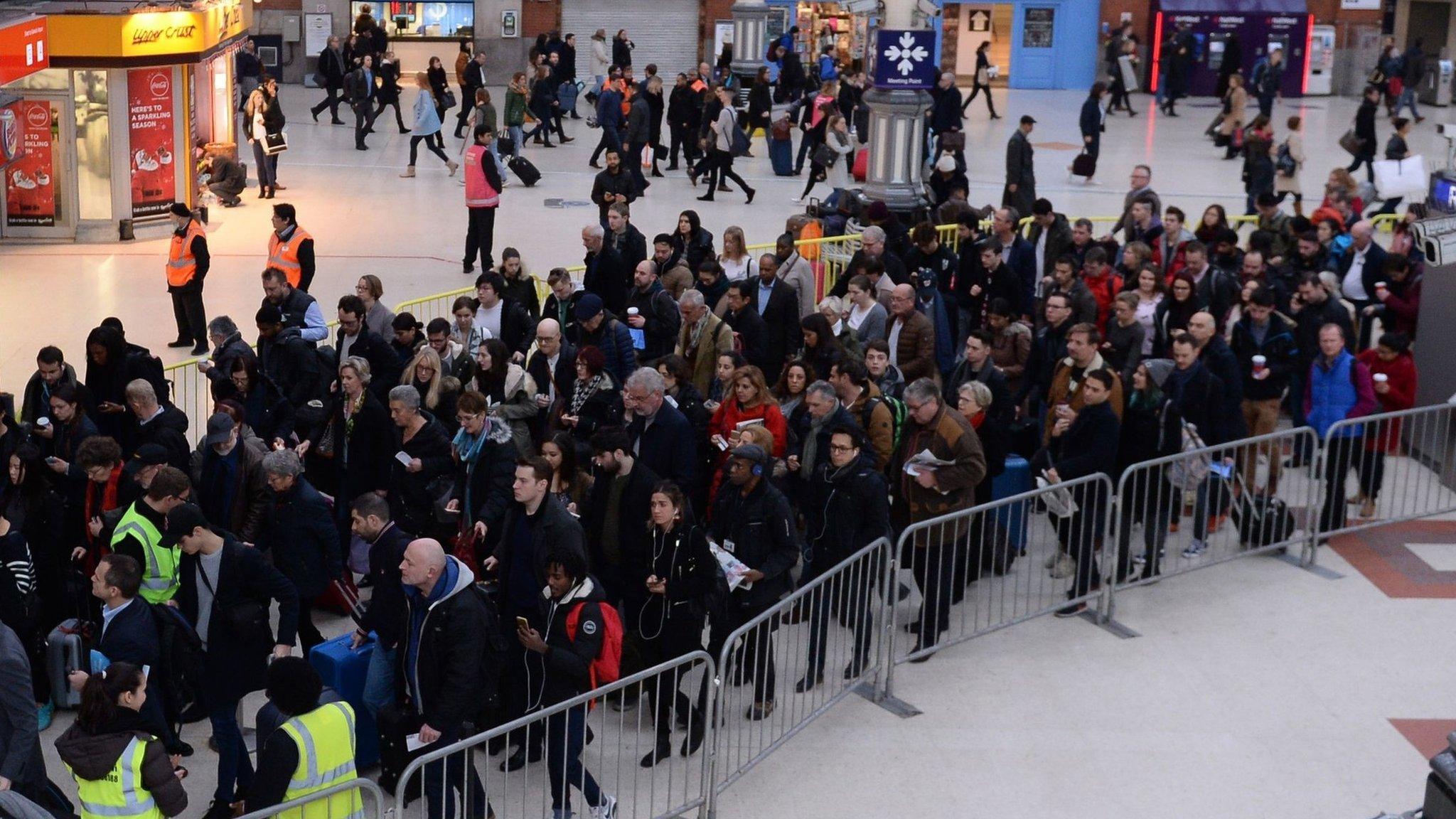Merseyrail to replace fleet with driver-only trains
- Published
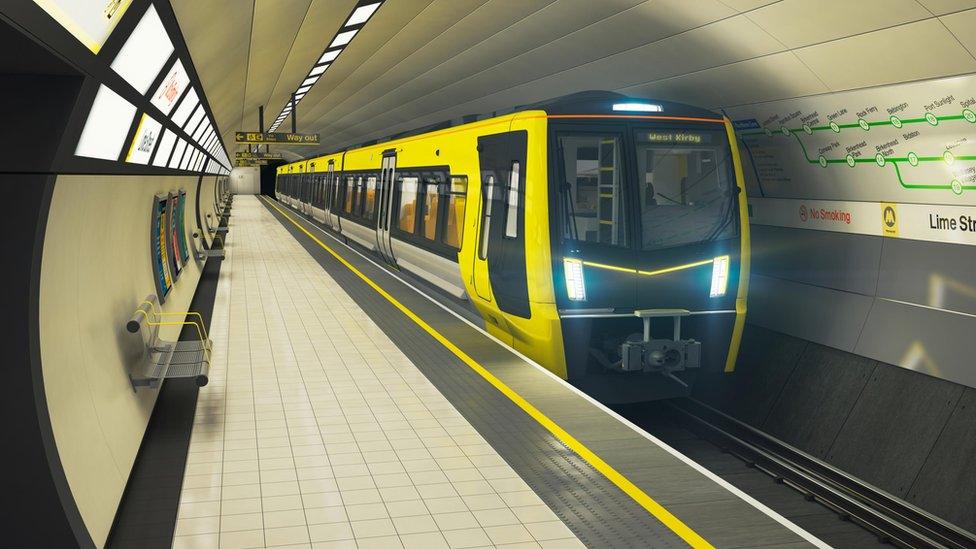
The new fleet and platform modifications will cost £460m
Merseyside's rail network is to be upgraded with a new fleet of 52 trains which will not need guards on board to operate the doors.
The £460m project will also see most platforms on the network altered to meet the new train's lower floors.
The new trains will have a sliding step which extends out to cut out the gap between the train and the platform.
Members of the RMT union, which represents rail staff, protested over fears safety could be compromised.
The trains, which are due to be in place by 2020, will be driver-operated with no guards on board meaning 220 guard and management posts will cease to exist.
The existing Merseyrail fleet, originally designed in the 1950s, is almost 40 years old.
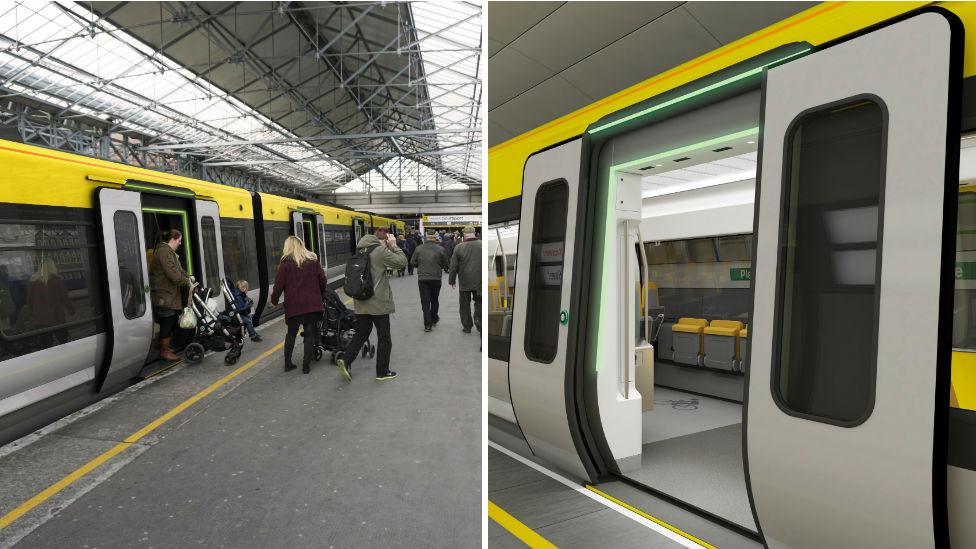
The doors will be illuminated with a traffic light system to make clear to passengers when it is safe to board
Merseytravel said the safety features of the new train have been designed in response to the death of 16-year-old Georgia Varley, who died in 2011 after falling into the gap between a train and platform.
The rail accident report following her death said Merseyrail, external should look at equipment and methods that reduce the likelihood of a person falling through the platform-edge gap.
The new trains will have sensors allowing doors to reopen if, for example, a passenger's bag or child's finger gets stuck in them.
The doors will also be illuminated with a traffic light system to make clear to passengers when it is safe to board.

The new train's safety features have been designed in response to the report into the death of Georgia Varley, 16
Members of the RMT and Aslef unions lobbied the meeting of Liverpool City Region's Merseytravel committee on Friday.
The RMT claimed the trains would be less safe because drivers would not be able to see all the passengers while they are boarding and could not provide security during journeys.
Currently, drivers cannot see the whole platform when the doors are closed.
The new trains will feature cameras enabling the driver to see the entire length of the train and there will be a speaker system to allow the driver to communicate directly with passengers, Merseytravel said.
John Tilley, RMT regional organiser, said it was "not about safety or customer service - it's all about money".
"We've got an agreement with them that the guards' role is protected on the trains and we expect that to be honoured, new trains or not. We have an absolute red line over this," he said.
Merseytravel said there would be no compulsory redundancies. There will be 63 new on board customer service roles created but they will not be on every train.

Claire Hamilton, Political Reporter, BBC Radio Merseyside
Aside from the flashy new trains, which will cut journey times, increase capacity and in future possibly see Skelmersdale on the Merseyrail network, the headline news here is the removal of guards from the trains.
The unions representing staff working on the railway have been anticipating the move towards driver-operated trains for several months.
They're furious at the decision - and they'll be lobbying Merseyside's MPs hard.
It's awkward for the members of the city region combined authority - they all lead Labour councils and some have union backgrounds themselves, most notably chair of the Liverpool City Region Combined Authority (LCRCA) Joe Anderson.
He and his colleagues must be torn between doing the best for the city region's infrastructure and rail passengers and protecting the jobs of those guards who are facing an uncertain future.

The trains will be longer than the existing fleet and able to carry more passengers - 486 in contrast to 303 currently - but there will be seven fewer.
Merseytravel said journey times will be reduced because these trains can accelerate and brake faster than the existing trains, giving the example of a journey between Hunts Cross and Southport, which will be 10 minutes quicker.
Funding the project will be complex and determining a financial package has been a key part of the project to date, Merseyrail said.
It envisaged borrowing about 50% of the "direct procurement" cost from the European Investment Bank with further borrowing from the Bank of England's Public Works Loan Board.
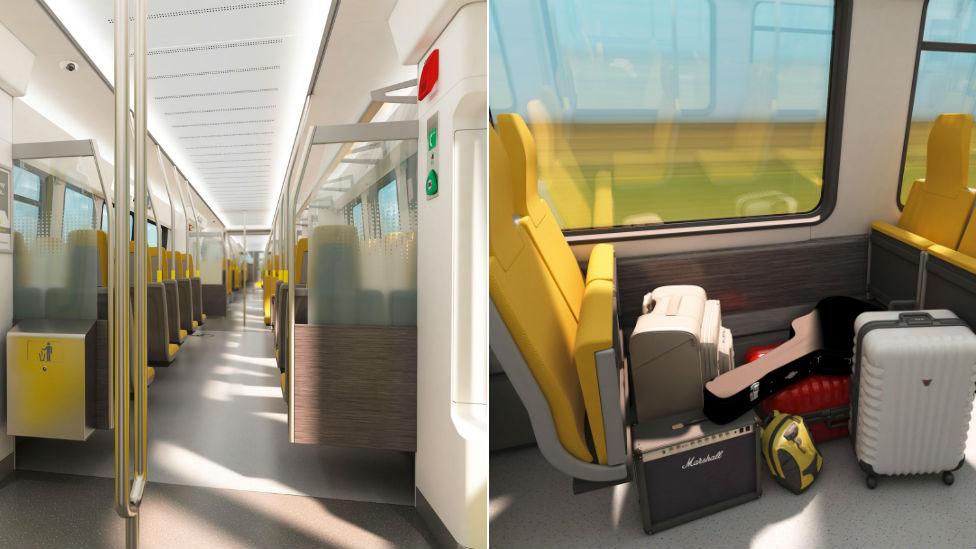
Merseyrail said journey times will be cut
In addition, the LCRCA and Merseytravel have "significant reserves" available which will be used "primarily for financing transitional costs and to manage the cost of improving the infrastructure and power supply."
The LCRCA has a £60m reserve while Merseytravel has been building reserves for more than five years with new trains in mind.
The train operator is promising that the trains will be more reliable and faster allowing it to operate a slightly smaller fleet.
In future the aspiration is to extend the network to Skelmersdale, Warrington and Wrexham.
- Published6 June 2013

- Published27 November 2012
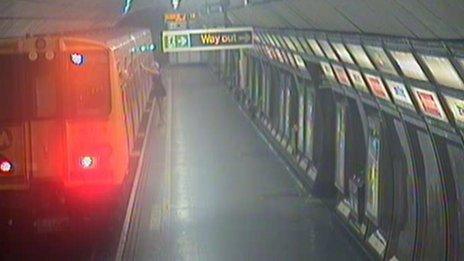
- Published10 October 2016
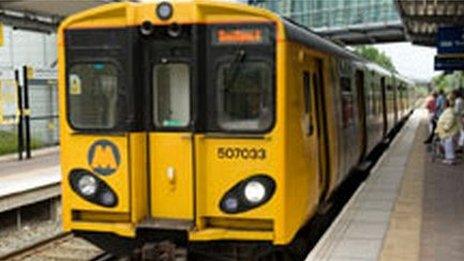
- Published16 December 2016
